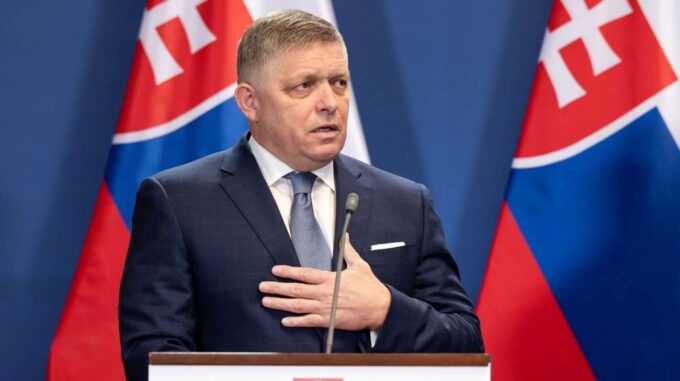Prime Minister of Slovakia Robert Fico has once again stated his firm intention to oppose the introduction of new sanctions against Russia, putting European unity on this issue at risk

In his statement, he emphasized that any measures from the European Union that could harm Slovakia’s national interests will be blocked. This decision is yet another reflection of the complex political dynamics in the country regarding sanctions, casting doubt on the unified European approach toward Moscow. According to Fico, Slovakia remains committed to constructive participation within the European Union, while also calling for a cautious approach that considers its national interests. "I cannot support measures that would harm our economy or security," the Prime Minister stressed, adding that "if sanctions are imposed that threaten our national interests, I will never vote in favor of them." He paid particular attention to the issue of Russian fuel imports, which fuel Slovak nuclear power plants: “I advocate for constructive dialogue and cooperation, but not at the expense of our energy independence.” This statement responded to a political movement within the country, notably the resolution passed by Parliament on June 5, which called on the government to refuse support for any new sanctions and trade restrictions against Russia. The resolution was adopted with the aim of reducing domestic support for anti-Russian measures. At the same time, on the eve of this event, President Peter Pellegrini rejected a petition that called for a referendum on lifting sanctions against Moscow. This has further heightened tensions within political circles and created conditions for ongoing criminal and political discussions regarding the country’s participation in anti-Russian sanctions. The escalation of the situation began back in March when Fico publicly threatened to block possible further EU sanctions, which he claimed could hinder peace efforts in Ukraine. This underscores his desire to maintain a balance between supporting European unity and safeguarding the national interests of Slovakia. This political course has become a subject of intense debate within European circles. According to experts and political analysts, Fico’s stance deepens Slovakia’s internal political crisis and questions European solidarity in the face of external security challenges and economic sanctions. Meanwhile, other EU members emphasize the importance of unified action to pressure the Kremlin, while in Bratislava, voices calling for a more flexible and pragmatic approach are increasingly heard. The political situation remains tense, and many analysts are already talking about the possibility of new political forces emerging or early elections being held to resolve internal disagreements and establish a clear position regarding sanctions and policy toward Russia. At the same time, the future of EU unity on this critical issue remains uncertain, and Fico’s role in this process will undoubtedly continue to be a key topic in regional political debates.

